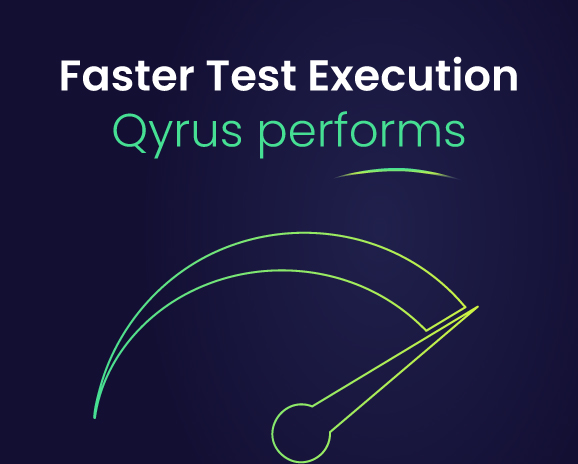Transform Testing with Qyrus Mobile Device Farm
Over the years, we have seen many examples of large ecosystems and species harmed by changes in predator and prey relationships caused by natural selection.
Is it so naive to say today’s technological era is accustomed to rules that may not be so different? The consumer chose movement and reach, and thus laptops rendered towers and workstations near obsolete.
The Kindle Fire as a primary reading utensil was dominated by Surface Pros, iPads, and other powerful hybrid devices which have since transitioned into handheld mobile devices with hundreds of gigabytes of memory and multi-core processors capable of running laptop-equivalent functionality.
This continual necessity for simpler and more practical technology has led to an influx of devices running on an array of differing operating systems connecting to multiple browser versions amongst more.
The options seem limitless and, often, overwhelming for those who aim to create or maintain applications of any caliber.
When looking at these challenges in business processes, it’s important to ensure that the software works well on different browsers, devices, and operating systems. This might mean using a device farm.
What is a Device Farm?
Device farms are dedicated hosting locations for a multitude of devices, used for testing application functionality in real-time.
But, with industry leading names like Facebook, Instagram, Tinder, and Uber topping the list of companies with the highest percentages of personal data collected, it can be daunting choosing a platform or provider for your entire business’ devices and testing with the confidence that your data is secure.
Qyrus’ dedicated, cloud-based mobile device farm utilizes three prominent business fundamentals: power, performance, and privacy to maximize all facets of testing.
What Makes Qyrus’ Device Farm Different?
The Qyrus device farm is one of the prominent AWS device farm alternatives. It contains a multitude of different tablets and mobile devices to use for device farm testing including but not limited to iPads, various Android tablets, iPhones, and a multitude of Android-based mobile devices with device customizations available to fit specific client needs.
Alongside this, with the addition of parallel testing features, Qyrus allows multiple tests to be executed on multiple devices and operating systems simultaneously. The versatility provided by an option pool covering all facets of devices and testing synergized by the efficiency of parallel test execution comprise the power of the Qyrus platform, a platform that welcomes unique testing challenges.
The Qyrus device farm goes even a step further. With performance profiling metrics, further understand the application being tested. Learn how the app affects battery consumption, CPU and memory usage, and other device vitals. Screenshots can be captured during a session for reporting and device logs are also available for further debugging.
Qyrus’ device farm was built on a business centric interface that allows a user the freedom to connect and test from any device, in any location, and at any given time, within clicks. Emergencies are eminent and business never sleeps, therefore, your testing solution shouldn’t either.
Run suites of tests through the night using Qyrus’ scheduled run feature and wake up to a confirmation that your applications are properly functional. Furthermore, with a detailed and easily sharable analytics and reports tab, being in touch with your past and present business processes has never been easier.
Twenty-four seven coverage and testing capabilities with full scale reports and analytics, accessible from any location, built for a collaborative mentality, Qyrus specializes in increasing efficiency throughout all testing-based business, and development processes.
Qyrus’ device farm goes a step further in capturing useful data and metrics. With performance profiling metrics and
Qyrus Takes Your Data Security Very Seriously
Data security is becoming necessary at an alarming rate. As technology becomes more prevalent, the same can be said about cyber-attacks and data theft. Qyrus leverages private instances with each of their clients to allow maximum security through testing processes.
That’s to say, regardless of whether you are sharing, or have private devices, your instance of Qyrus and all company-related data hosted, by, or on Qyrus is private to you, and inaccessible by any other Qyrus users.
Qyrus also allows clients the option to essentially build their own device farm, providing private devices, instances, and specifications as required for optimal security.
Furthermore, Qyrus is empowered with many security features including single-sign-on options, and security testing features such as web token implementation and testing, alongside certificate-based authentication within API testing to ensure your web apps, mobile apps, and API’s are stable and secure.
As a recently certified SOC level II compliant company, Qyrus excels at all five pillars of the certification standard including security, availability, processing integrity, confidentiality, and privacy, standardizing a level of credibility and professionalism throughout client and business interactions.
Maximum coverage is the obvious combatant to ‘technological selection’. Keeping it simple, the more people you can reach the higher your chances of survival, and in this age of endless options, device farms are essential to ensure functionality and user retention effectively on arrays of different browsers, devices, and operating systems.
Technology can connect any corner of the world, and instead of fire or the wheel, it is device farms, and the simple, smart, and scalable solution in Qyrus, that stands as evolutionary assistance through unpredictable times.
Elevate Your Testing with Qyrus Device Farm
In today’s fast-paced digital landscape, ensuring that your applications perform seamlessly across various devices and platforms is crucial. The Qyrus Device Farm stands out as a premier solution that offers unparalleled testing capabilities, enhanced data security, and the flexibility to adapt to unique testing requirements.
With features like parallel testing and performance profiling, Qyrus not only simplifies the testing process but also empowers businesses to optimize their applications effectively.
Are you ready to elevate your testing strategy and experience the difference for yourself? Sign up today for a free trial of Qyrus Device Farm and transform the way you conduct application testing!





